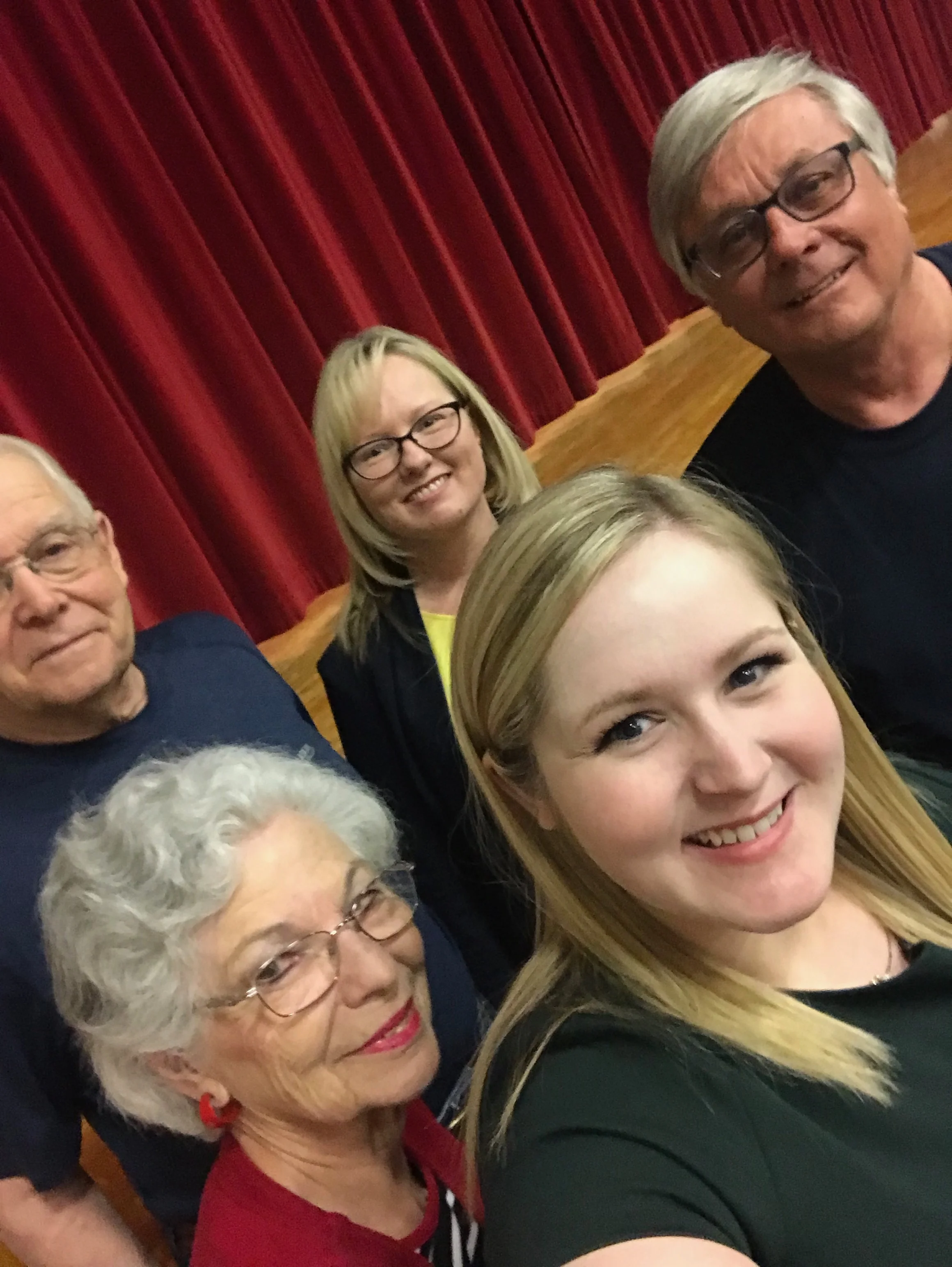Spring is already a naturally busy time for me: election season rolls over into graduation, and the community starts to pull itself out of hibernation and hold events and make decisions.
This year, it’s also crunch time for my newest project.
Late last fall, Rotary had a visit from our assistant district governor, who threw out that we should consider sponsoring an Interact Club. Since I already frequent the high school to work with The Growler, heads turned down the table at me. Ok, I’d look at it.
And as soon as I took time to look at it, I knew this is something we had to do.
Rotarians who came to our first student interest meeting earlier this month.
Interact Clubs are essentially student Rotary. They operate like a Rotary Club (and, if correctly, admittedly with more formality than we use at our own Rotary Club). They hold programs to educate members, and do two service projects a year: one for the school or community, a second to promote international understanding. We’re not talking about a penny drive, either: these service projects need to include real organization and work. Even more important, they’re entirely chosen and organized by the students. Rotary members and faculty advisors will be present to guide and facilitate, but the decisions and work will come down to the students.
It’s the type of responsibility I think high school students learn the most from and thrive in.
And, while they’re doing all this, they’ll be learning about Rotary’s core values: service, fellowship, diversity, integrity and leadership.
The projects and programs will fall under Rotary’s areas of focus: promoting peace, fighting disease, providing clean water, saving mothers and children, supporting education and growing local economies.
I’ve come to realize in recent years just how little the community at large knows about how it works, and last year even suggested to one teacher that she start a civic club. Interact will essentially fill that role, because to teach students how to serve their communities, they’ll need to know how they are set up. The club also provides the framework to look at the world in a responsible, thoughtful way.
When accompanying our students of the month for the first time, one of the high school administrators picked up the Four Way Test and commented that you don’t see much of that any more — which is why I think it’s exactly the right time to bring Interact to Odessa students.
We formed a committee, and have been working since last December to make this a reality. We’ve had incredible support from the school district along the way.
Talking to students interested in serving on the steering committee.
We went live and had our first student interest meeting this month, and had 20 students sign up — which, as Dawn Jennings, a wonderfully supportive committee member, math expert and realist, pointed out, is 25% more than deemed necessary to start a club in the international guidelines.
What I found particularly encouraging was that of that 20, more than half were interested in being on the steering committee — a demanding leadership role to get the club prepared to form and seek its charter at the beginning of next year. So many want to be a part, in fact, that we’re going to need to have an election.
It’s been a long organization process, but I’m extremely excited to get going and see where these students take us.


